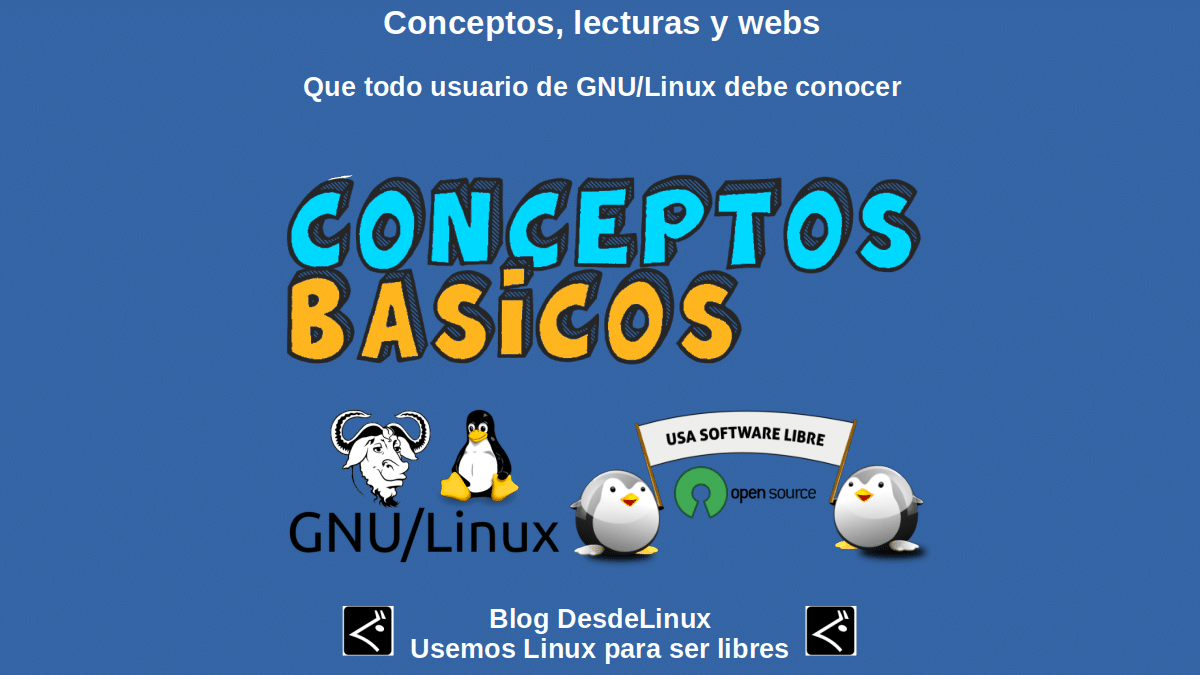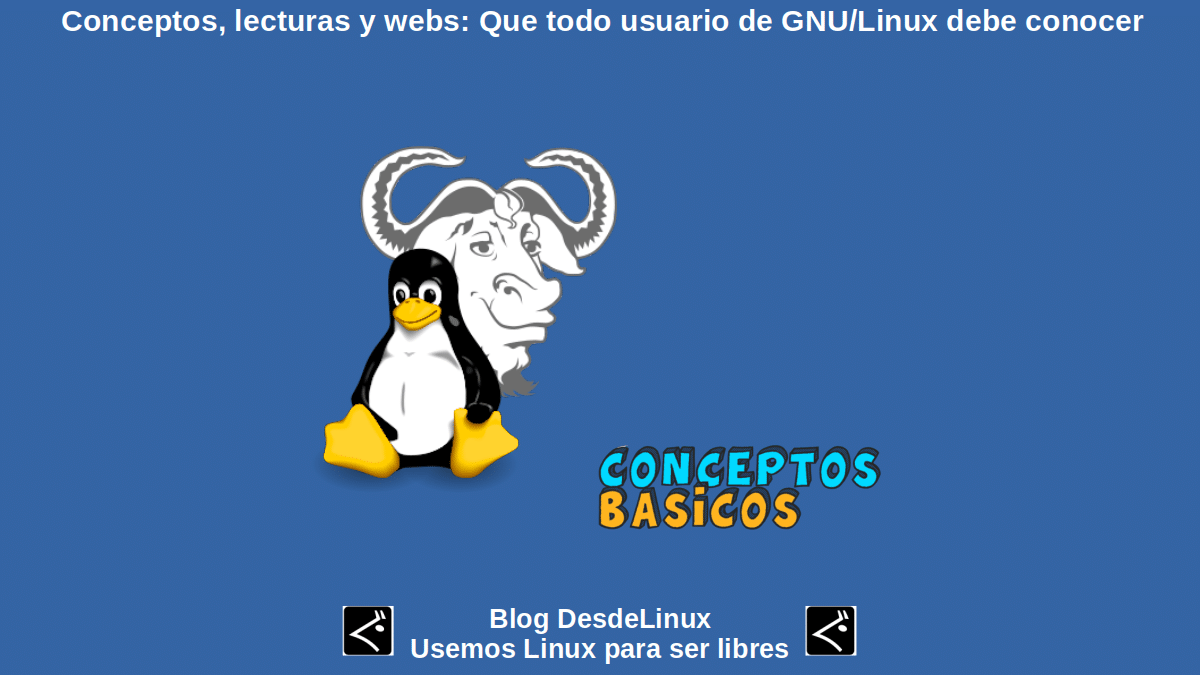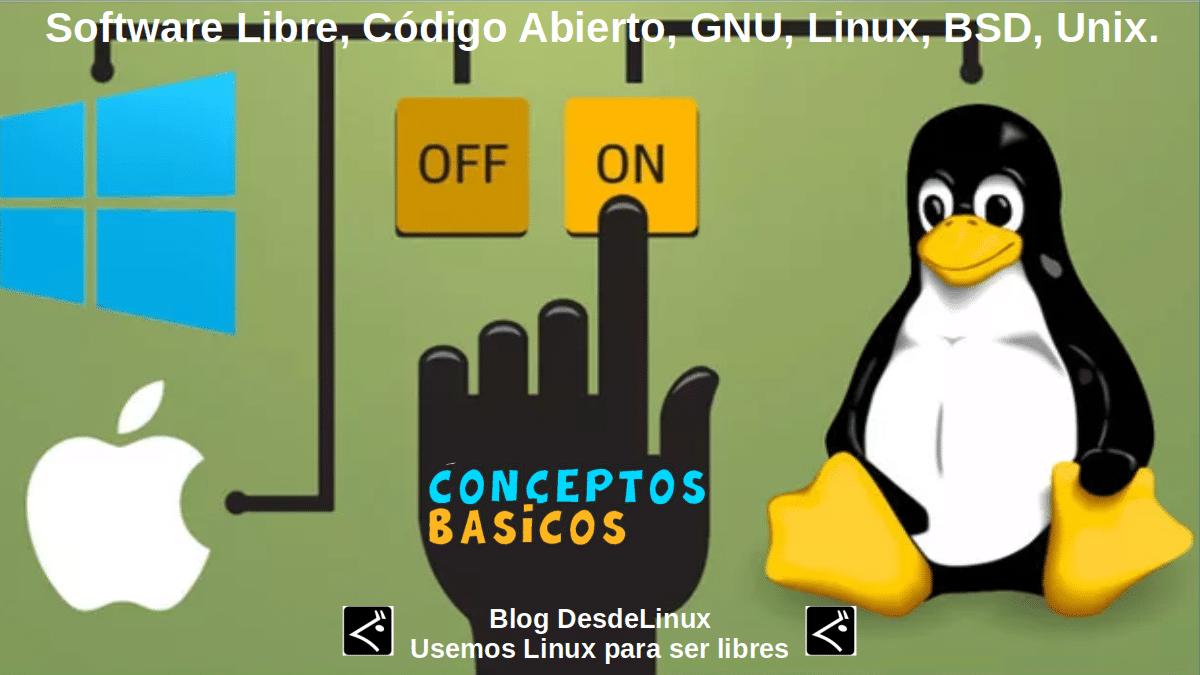
Concepts, readings and websites that every GNU / Linux user should know
Today, it is important for any member and user any product community or technology, above all the newer ones, knowing in depth the fundamental bases of everything they use, share and support.
Therefore, in this publication we will announce certain basic concepts related to Free Software, Open Source, GNU, Linux / BSD / Unix, which are part of fundamental readings de important websites, that all of us who are part of this Community, we must do at some point, especially if we are starting in it.

Therefore, the recommendation when reading the basic concepts exposed here, is that the same deepen through the fundamental readings from where they were extracted, that is, their official broadcasting websites, so that they enrich their knowledge about what we are so passionate about, or begin to become passionate if they are new users of the Community.

Concepts, readings and useful websites
Basic concepts to learn
According to GNU Project official website, the following basic concepts can be briefly described as follows, however, remember to perform the recommended reading of the associated links to understand all the context related to such a short description:
What meaning does Free Software include?
"It is the software that respects the freedom of users and the community. Broadly speaking, it means that users have the freedom to run, copy, distribute, study, modify, and improve the software. In other words, "free software" is a question of freedom, not price. To understand the concept, think of "free" as "free speech," not "free bar." In English, sometimes instead of "free software" we say "free software", using that French or Spanish adjective, derived from "freedom", to show that we do not mean that the software is free." Recommended reading.
What meaning does Open Source include?
"The terms "free software" and "open source" refer to almost the same set of programs. However, they say very different things about these programs, based on different values. The free software movement defends the freedom of computer users, in a movement for freedom and justice. In contrast, the open source idea primarily values practical advantages and does not defend principles. Both describe almost the same category of software, but represent views based on fundamentally different values." Recommended reading.
What is the meaning of GNU as an Operating System?
"GNU is a free software operating system, that is, it respects the freedom of users. The GNU operating system consists of GNU packages (programs specifically published by the GNU project) as well as free software published by third parties. The development of GNU has allowed a computer to be used without software that tramples our freedom. Furthermore, GNU is a Unix-like operating system, which means that it is a collection of many programs: applications, libraries, development tools, and even games." Recommended reading.
What meaning does Linux include as a Kernel of an Operating System?
"Linux is the kernel: the system program that is responsible for allocating the machine's resources to the other programs that the user runs. The kernel is an essential part of an operating system, but useless by itself, it can only work within the framework of a complete operating system. Linux is normally used in combination with the GNU operating system: the complete system is basically GNU to which Linux has been added, that is, GNU / Linux. All so-called "Linux" distributions are actually GNU / Linux distributions." Recommended reading.
Other useful basics
What meaning does BSD include as Kernel of an Operating System?
""BSD stands for "Berkeley Software Distribution". It is the name of the University of California, Berkeley source code distributions, which were originally extensions of the UNIX® operating system from AT&T Research. Several projects of open source operating systems have their origin in a distribution of this code known as 4.4BSD-Lite. In addition, they comprise a number of packages from other open source projects, including especially the GNU project." Recommended reading.
Other important concepts that we suggest to know, deepen and clarify are:
Useful websites to know and explore
- DistroWatch
- Apache Foundation
- LibreOffice Foundation
- Linux Foundation
- Mozilla Foundation
- Free Software Foundation
- Open Group (Unix Standard)
- Open Source Organization
- Linux Kernel Organization
- Linux organization
- GNU project
- Richard Stallman's Official Site

Conclusion
We hope this "useful little post" about certain «Conceptos básicos», useful and essential, both for old and experienced users as well as for new and novices; is of great interest and utility, for the entire «Comunidad de Software Libre y Código Abierto» and of great contribution to the diffusion of the wonderful, gigantic and growing ecosystem of applications of «GNU/Linux».
And for more information, always do not hesitate to visit any Online library as OpenLibra y jedit to read books (PDFs) on this topic or others knowledge areas. For now, if you liked this «publicación», don't stop sharing it with others, in your Favorite websites, channels, groups, or communities of social networks, preferably free and open as Mastodon, or secure and private like Telegram.
Congratulations for the very educational article!
I read in the BSD concept that you have a good entry explaining its meaning and origin.
In the GNU you say it is a Unix-like operating system, but the name GNU is a recursive acronym for 'GNU is not Unix'.
Greetings, CanJaume. We are glad that you liked the content of it. With respect to the latter, the phrase "a Unix-type operating system" is assumed to mean that it is similar to Unix, not that it is Unix, that is, it only follows its design and operation philosophy.
Thanks for the clarification! Happy 2021 linuxeros !!